Finding the Best Return On Investment for Your MBA: Dallas

Choosing the right MBA program can feel overwhelming. With nearly 800 accredited business schools in the United States, the idea of wading through the information on every program is intimidating to say the least. A variety of features, such as a school rankings, internship opportunities, and an extensive alumni network may be huge factors where you choose to earn your master’s. But one of the most important variables to consider is a program’s return on investment (ROI). It is essential to pick a school with an enviable ROI, as this will ensure that the time and money you dedicate to earning your MBA are not for naught. Given the considerable cost of higher education, it is important to attend the school that will give you the most bang for your buck.
The Best Dallas MBA Return on Investment
Cox School of Business – Southern Methodist University
At the SMU Cox School of Business, students can expect an admirable rate of return on the cost of education. The tuition rate of $45,976 per year for the two-year program is among the most enviable in the U.S. The average graduating salary for MBA’s was $96,587, which is more than double the yearly cost of tuition. This school is also ideal for students hoping to global perspective, as students at Cox have the opportunity to participate in an international MBA exchange program, which allows them to continue their education in Latin America, Europe, Australia, or Asia. Simply put, SMU Cox doesn’t just provide one of the best Dallas MBA return on investment opportunities, but one of the best in the country overall.
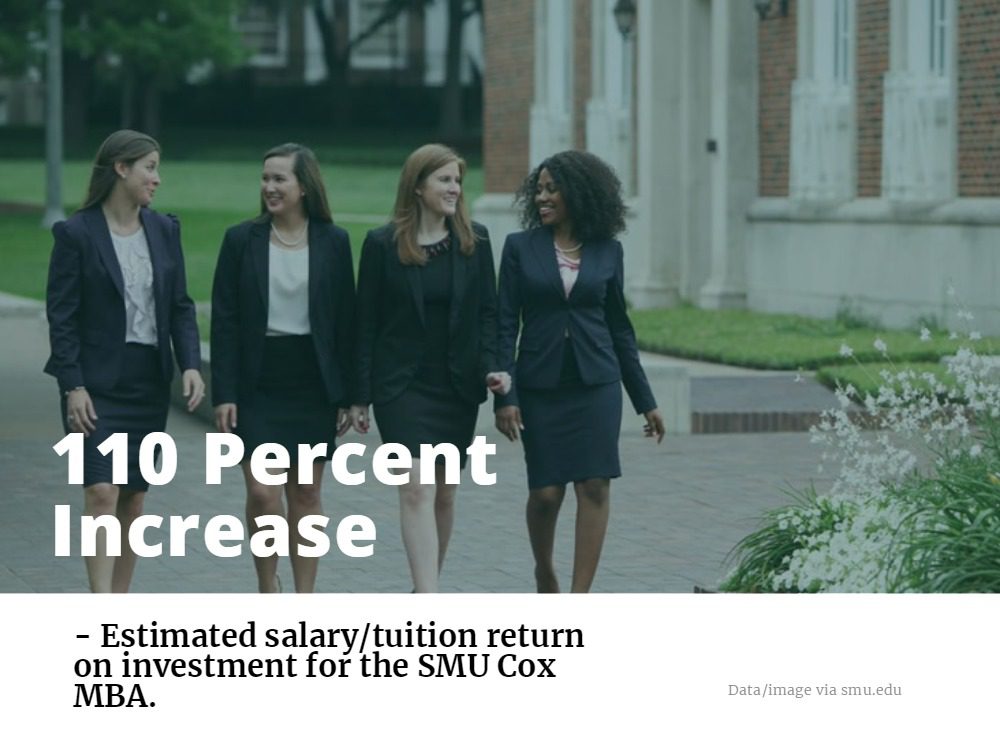
Hankamer School of Business – Baylor University
Baylor’s Hanker School of Business is another excellent option for students seeking a respectable ROI. The full-time program can span from 16 to 21 months, with a tuition of $20,597 per semester (over about three to four semesters, depending on course load and core requirements met during undergrad). According to Hankamer’s website, the average starting salary for MBA graduates in 2017 was $73,314. Additionally, Hankamer’s Career Management team is nationally-ranked, and can provide extra support for students seeking help with job placement.
McCombs School of Business – University of Texas at Austin
The MBA program at the McCombs School of Business currently costs $30,750 per semester, bringing the total tuition to about $123,000. The cost will is steeper for non-residents (closer to $189,000). Though the cost of tuition at McCombs is nothing to sneer at, neither is the reward. In fact, the most recent MBA class had an impressive average starting salary of $117,068. McCombs, which is also one of the largest business schools on this list, also has an extensive alumni network, which includes the CEOs of Southwest Airlines (Gary C. Kelly) and Heinz (William R. Johnson).
Naveen Jindal School of Management – University of Texas at Dallas
Like many of the schools we mentioned on this list, the Naveen Jindal School of Management has a solid track record when it comes to ROI. Tuition for the full-time MBA program is just $32,998 for in-state residents and $64,332 for non-residents. In addition to the reasonable cost, the school’s website states that 80 percent of students receive scholarships that cover an average of 45 percent of the total program cost. In 2017, U.S. News & World Report stated that the school’s MBA program, “… had the highest salary-to-debt ratio among ranked business schools.” According to the article, average starting salary for graduates (of those who were employed within three months of graduation) was $86,644.
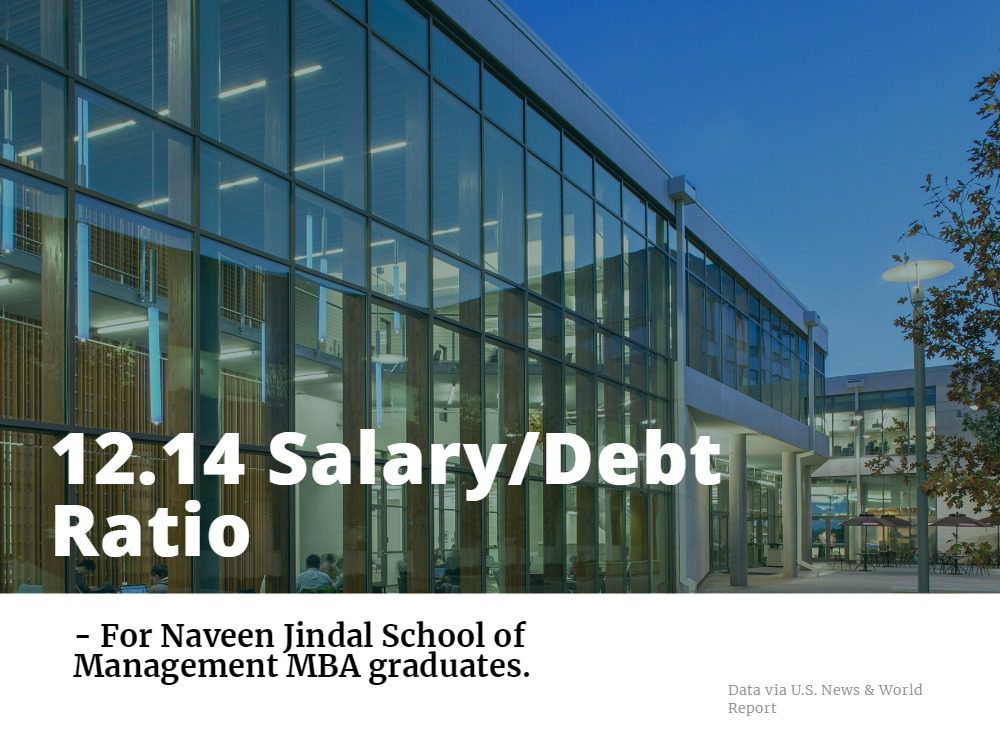
Neeley School of Business – Texas Christian University
At TCU’s Neeley School of Business, the average starting salary for the most recent graduates of the full-time MBA program was $93,093, surpassing the total tuition of $88,020. Moreover, Neeley boasts a 92 percent employment rate 90 days after graduation. Recent graduates have taken jobs at renowned companies like Ernst & Young and IBM. In addition to standard core classes, Neeley introduces a great deal of experiential learning into the curriculum. At the end of their first year, students participate in an Integrative Project that offers them the opportunity to apply their skills to real-world business obstacles via a week-long simulation.
Temple, Carnegie Mellon Top U.S. News 2018 Online MBA Rankings

The annual U.S. News & World Report 2018 Online MBA rankings are officially in, with the Fox School of Business at Temple University, once again, taking the top honors.
Getting Paid: The Highest-Earning Houston MBA Grads

Houston metro is not just home to mouth-watering Texas barbecue and some of the most beautiful beaches in the country. It is also one of the most diverse places on the planet. The melding of cultures and trades yields a booming economy that spreads across a variety of industries, not to mention the best Tex Mex in the world.The city’s thriving economy combined with a low cost of living also makes for a large contingent of cultural philanthropists and institutions, giving Houston one of the great art scenes in the US. Delicious food and cultural perks aside, earning an MBA in Houston is a practical decision for a multitude of reasons. Houston is one of the most populous cities in the US, and it is home to nearly two dozen Fortune 500 companies.
For future industry leaders looking to pursue especially lucrative careers, we’ve laid out the schools that produce the highest paid MBAs in Houston.
Rice University — Jones Graduate School of Business
For b-schoolers aspiring to take high-powered positions with an equally respectable pay off, the Jones Graduate School of Business may be a viable option. The MBA students who graduated in 2016 had an impressive average base salary of $112,158, with an average signing bonus of $25,475. About 34 percent of these grads pursued finance or accounting, and the second most popular industry was consulting (24.7 percent). Though Rice’s rankings and stats are objectively impressive, this school also works to build a sense of community. Class sizes are relatively small, at 40 people per class, and professors strive to familiarize themselves with the students they teach.
Mays Business School – Texas A&M University
The rigorous MBA program at the Texas A&M Mays Business School is sure to provide MBAs with the tools they need to launch high-income careers. The average base salary for the class of 2016 was $103,299. This represents an impressive 87 percent increase from the average pre-MBA salary. The full-time track involves a formidable course load during the first year, as this is when 75 percent of students’ 49 credit hours will be completed. This creates more freedom to pursue internships and electives in the following months, though internships are generally completed during the summer.
YOU MIGHT ALSO LIKE: The Houston International MBA Programs You Need To Know
McCombs School of Business – University of Texas at Austin
At the McCombs School of Business, the mean starting salary for the MBA class of 2017 was a remarkable $117,068, with an average signing bonus of $28,349. A respectable 29 percent of these graduates accepted jobs in the technology field, while 21 percent secured jobs in consulting. This cohort-based program offers MBAs the opportunity to thoroughly map out their academic trajectory, so their education stays aligned with their career goals. This program is unique in that students complete one semester of required courses, and completely design their own curriculum for the remaining three semesters. Students can also design their course choices around one of seven possible concentrations.
Marshall MBAs Win Deloitte Human Capital Case Competition

Earlier this month, a team of MBAs from the USC Marshall School of Business won the Deloitte Human Capital Case Competition. The competition was hosted by Vanderbilt University’s Owen Graduate School of Management and featured a top prize of $10,000, according to a press release. Continue reading…
The 5 Best Dallas Executive MBA Programs

In the world of business, the Executive MBA degree is akin to an Iron Man decathlon in which one simultaneously attempts work, life, and school with equal gusto.
Designed to reskill and get mid-career professionals up to speed on the latest management trends, the value of an EMBA as a useful negotiation tool is undisputed—especially if you can get an employer to fit the bill. If not, it’ll cost you but the investment is one that will certainly go a long way to paving a future leadership position way up the corporate ladder.
And when it comes to corporate ladders, the greater Dallas metro area has got an embarrassment of riches. The region is HQ to Exxon Mobil, AT&T, American Airlines, Southwest, Texas Instruments, JC Penney, and Gamestop, among many others on the 2017 Fortune 500. You could also do a lot worse with the area’s cultural offerings, especially if you like football, art, and authentic Tex-Mex.
Let’s take a closer look at five best Dallas Executive MBA programs:
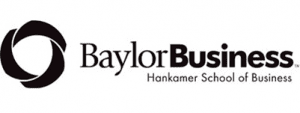
Baylor’s Hankamer School of Business
The Baylor Hankamer School of Business 48-credit, 21-month, $91,000 EMBA is designed for mid-level executives. The program emphasizes leadership skills, decision-making, human resource management, global strategic management, and contemporary business issues within a cohort lock-step structure. The 50-credit, $94,000 EMBA Healthcare curriculum does the same but specifically tailored to the healthcare sector. EMBA students arrive from a variety of companies, including Apple, AT&T, Xerox, Wells Fargo, Microsoft, Coca-Cola, Wal-Mart, and American Airlines. The EMBA does not require GMAT or GRE scores but applicants must have at least five years of work experience.

Southern Methodist’s Cox School of Business
The SMU Cox 21-month, $120,150 part-time EMBA prepares experienced business leaders to take their career to the next level by helping them move into higher executive level positions or to expand their company’s reach. The EMBA emphasizes general management practices, strategy, finance within real-world applications. Applicants are expected to have at least eight years of work experience but GMAT/GRE scores are not required.
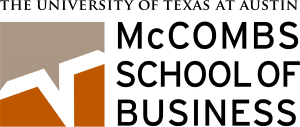
UT-Austin’s McCombs School of Business
The curriculum for McCombs School of Business 2-year, 42-credit, $116,800 EMBA is based on a cohort system in which groups of five students “encourage teamwork and development of leadership skills” among one another and each student is paired with a mentor from the previous year’s class. The EMBA covers effective communication, risk and change management and business ethics. Of the 68 students in the EMBA class of 2018, the average age is 37 and the average work experience is 14 years.
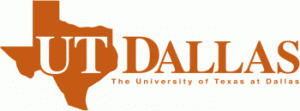
UT-Dallas’ Naveen Jindal School of Management
The UT Dallas Naveen Jindal School of Management 21-month, 53-credit, 5-semester, $85,000 EMBA was developed to prepare “experienced professionals for careers in upper management.” The cohort structure centers on “the fundamentals of business, marketplace advancement, leadership, corporate assets strategy, and data use and interpretation.” The average UT Dallas EMBA student is 40 and with an average work experience of 16 years. Applicants must have a minimum of eight years “professional business experience with international and management experience,” although GMAT or GRE scores are not required.

UT-Arlington College of Business
The UT Arlington College of Business 15-month, 37-credit, $74,500 EMBA (and accompanying Asian Business Studies certificate) is ideal for helping mid-level and upper-level managers and executives “develop the skills needed to move their company into global markets or to increase the company’s presence in a global market.” The EMBA focuses on the “skills and knowledge needed to run multinational firms, manage data, and develop effective teams that will help firms expand into global markets, maintain customer value, and build long-term customer relationships.”
Its cohort structure allows students to gain “extensive experience working collaboratively as part of a team,” which extends to the two-week Chinese immersion trip in which students develop a project specific to the region.
The average UT Arlington EMBA student is 38 with an average of 16+ years of work experience. Executive MBA students generally pay for the program through employer sponsorship, although there are scholarship and financial aid opportunities available.
Social Impact MBAs: Programs That Help Students Make a Difference in the World

For years, social impact has been a growing area of emphasis at business schools. Increasingly, MBA students are stating that a well-paying career isn’t enough: They also want to make a difference.
As Sherryl Kuhlman, the managing director of the Social Impact Initiative at the University of Pennsylvania’s Wharton School, told U.S. News & World Report: “Our students want to make the world go round in a different way. [They are no longer willing to] take a job they don’t like so they can give their money away later. They want to merge the money and the purpose.”
MBA programs incorporate social impact into their programs in various ways, through global experiences, coursework, clubs, competitions, and more. MBA students may also have opportunities to team up with corporations, government agencies, and nonprofit organizations to get hands-on experience during their graduate studies.
So if you’re interested in social impact, what opportunities should you look for within an MBA program?
Centers and Initiatives
Some schools run entire centers and initiatives dedicated to the idea of social change. Typically, these centers provide the foundation around which a variety of social impact opportunities are built, including research, career help, events, and course development.
For example, the McCombs School of Business at UT Austin recently launched its Social Innovation Initiative, which provides students, faculty, and the community with preparation to promote social change. The initiative offers graduate-level curricular offerings, with courses such as “Energy Technology and Policy” and “Invisible Global Marketing.” There are also many extracurricular activities such as the Social Impact Investment Fund, a peer-created fund that provides financial support for MBA students pursuing internships in the social impact space.
“The creation of the Social Innovation Initiative is a crucial step in bringing UT’s overlapping communities together to collectively address the world’s most pressing challenges,” Dr. Meeta Kothare, managing director of the initiative, said in a press release. “The interdisciplinary nature of the initiative is key because the most impactful social innovations often result from collaborations among private, public, and social sectors.”
At Stanford Graduate School of Business (GSB), the Center for Social Innovation aims to bring about social and environmental change through research, education, and experiential learning opportunities. For MBA students, the center offers social innovation courses, study trips, the potential to participate in an investment committee, and fellowships to provide leadership opportunities. The school even hosts an annual ceremony each spring drawing together a tight-knit core of students, faculty, and alumni who share a commitment to social innovation. Three classes of awards are handed out to a dozen students at the event, and Dean Emeritus Arjay Miller, 101, attends to encourage the continuation of a community of social innovation he helped found at the GSB while dean from 1969 to 1976.
Then, there’s the Yale School of Management Program on Social Enterprise. This initiative supports faculty, students, alumni, and practitioners in their pursuit of using business skills to achieve social objectives. It does this by offering a span of programs including courses such as “Global Social Enterprise” and “Managing Sustainable Operations,” as well as research, conferences, and publications. For extracurricular activities, students can participate in the Social Impact Lab, a weekly forum with opportunities to engage with industry leaders and each other, as well as the Economic Development Symposium, an annual conference that brings together eminent scholars, action agents, and key opinion leaders to work on solutions to pressing economic development issues.
Programs
For many business schools, social entrepreneurship is offered part and parcel with their MBA degrees. These programs can range from a one-week social enterprise trip overseas to a formal concentration within the MBA program.
At Northwestern University’s Kellogg School of Management, MBA students can elect a Social Impact pathway concentration. This pathway is designed for students who want to create positive social change and includes required courses on a variety of topics from “Leadership and Crisis Management” to “Public Economics for Business Leaders” and “Health and Human Rights.” Within the pathway, there are three tracks: policy, nonprofit, and social innovation, each offering in-depth coursework to position students for their desired careers.
Meanwhile, MBA students at Emory’s Goizueta Business School can explore social impact through an annual seven- to 10-day Social Enterprise @ Goizueta Trip. These trips take students to countries around the world to observe the challenges that local economies face and develop market-based solutions. Alumni and evening MBA students can also travel to Nicaragua to visit coffee farms and meet growers. Full-time MBA students can visit Nicaragua or El Salvador to explore social enterprises on the ground and work on community health projects.
Competitions
Some schools offer hands-on experience in social impact to their students in the form of social venture competitions.
Through Harvard Business School (HBS)’s Social Enterprise Initiative, which aims to educate, inspire, and support leaders across all sectors to create social change, MBA students can participate in the New Venture Competition (NVC). The competition offers participants a grand prize of $50,000 as well as workshop opportunities, feedback, and business plan development advice.
Designed for students and alumni interested in using their business skills to create innovative approaches to tackling social problems, the Social Venture Competition at NYU Stern School of Business is similar to that of HBS’s NVC. Over the last 11 years it has awarded more than $900,000 to startup social ventures developed by students.
Clubs
Net Impact is one of the most popular social impact clubs, with chapters across the globe. More than 100,000 individuals have joined more than 300 chapters across the world to take on social challenges, protect the environment, and orient business toward social impact. The Net Impact chapter at UCLA Anderson School of Management, for example, has been awarded Gold Status, which recognizes it as a high-performing chapter and qualifies it to serve on the national Net Impact advisory board.
One of highlights of Net Impact is the annual Net Impact Conference, which welcomes attendees from across the globe to hear from keynote speakers, such as Clif Bar CEO Kevin Clearly and Derreck Kayongo, the CEO of the Center for Civil and Human Rights. Attendees at the Net Impact Conference can also take part in a variety of workshops, panels, and boot camps on topics ranging from civic engagement to equity.
In addition to Net Impact chapters, many MBA programs also offer their own social enterprise-focused student organizations. For example, the Social Enterprise Club at Columbia Business School connects students with faculty, alumni, professionals, and organizations to develop business skills and create social, environmental, and economic value.
Scholarships
At Oxford Saïd Business School, MBA students have the opportunity to apply for the Skoll Scholarship, a competitive award for students pursuing entrepreneurial solutions to urgent social and environmental challenges. The scholarship provides funding as well as opportunities for the award winners to meet and interact with world-renowned entrepreneurs, thought leaders, and investors. To qualify, an applicant must have three years of experience in social enterprise and be an incoming MBA student.
At Duke’s Fuqua Business School, there’s the CASE Social Sector Scholarship for incoming daytime MBA students. Scholarship recipients receive at least 25 percent tuition support as well as funding from the CASE Summer Internship Fund. Incoming MBA students who can demonstrate their commitment to applying their business skills in the pursuit of social impact are eligible to apply.
This is far from an exhaustive list—rather it’s a sampling of the wide-ranging opportunities to study social impact across MBA programs around the world. We hope it can provide a jumping off point as you begin to investigate social impact opportunities at your target schools.
